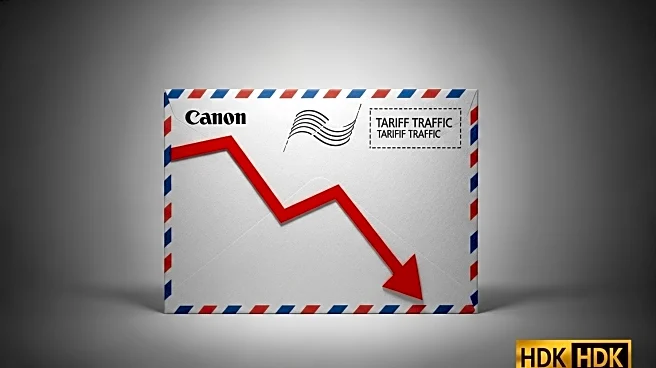What's Happening?
The United Nations postal organization has reported a significant drop in global postal traffic to the United States following the expiration of the de minimis exemption, which previously allowed goods valued at $800 or less to enter the country duty-free. The Trump administration ended this exemption, imposing tariffs ranging from 10 to 50 percent on low-value parcels, or a flat rate of $80 to $200. This change has led to major operational disruptions, with 88 postal operators suspending services to the U.S. The Universal Postal Union (UPU) is working to mitigate the impact by developing a tool to calculate taxes owed on packages at their point of origin.
Why It's Important?
The end of the de minimis exemption is part of the Trump administration's broader strategy to reduce the U.S. trade deficit by imposing tariffs on trading partners. This policy shift has created uncertainty for small businesses and consumers, as many overseas suppliers are hesitant to ship goods to the U.S. until the cost burden is clarified. The disruption in postal services could have significant economic implications, affecting the availability and cost of imported goods, particularly for small businesses that rely on international suppliers.
What's Next?
The UPU is rolling out a landed-cost calculator to help postal operators manage the new tariff requirements, aiming to restore postal traffic to the U.S. However, the quick implementation of the rule has left many operators and businesses struggling to adapt. The Trump administration's focus on trade policies suggests that further changes could be forthcoming, potentially impacting international trade dynamics and postal services.
Beyond the Headlines
The suspension of the de minimis rule highlights the complexities of international trade and the challenges of balancing economic protectionism with global commerce. The policy change raises questions about the effectiveness of tariffs in achieving trade balance and the potential for unintended consequences, such as increased costs for consumers and disruptions in global supply chains. The situation also underscores the need for clear communication and coordination among international postal operators and governments.








